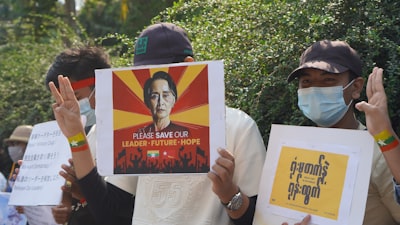The phrase 'ทุ่งสังหาร'—translated as 'killing fields'—evokes not only Southeast Asia's turbulent past, but also the dire consequences when societies refuse to confront hard truths. Inspired by the Matichon Online headline, it’s clear that Thailand stands at a crossroads: one where avoidance is no longer tenable and where every misstep has real, often tragic, repercussions.
A Moment Demanding Urgency Thailand's current political, social, and economic climate feels eerily reminiscent of regions scarred by past violence or upheaval. Issues such as stagnant reforms, deepening inequality, and increasing political polarization are reaching a boiling point. The metaphorical 'killing field' today may not be physical violence, but a slow erosion of society's cohesion, trust, and future prospects.
Key Dilemmas and Controversies The national discourse is split between those advocating comprehensive reforms (in justice, education, economy), and those defending the status quo. Each camp warns of dire consequences if the other prevails. The real danger, however, comes not from choosing one path over another, but from failing to choose at all—paralysis that paves the way for irreversible decline.
Comparing Courses of Action
| Perspective | Pros | Cons |
|---|---|---|
| Bold Reform | Potential for long-term stability, global competitiveness, more equitable society | Resistance from entrenched interests, risk of short-term disruption |
| Status Quo/Conservatism | Social stability in the very short term, predictability | Loss of competitiveness, deepening divisions, youth disenfranchisement |
People, Places, and Power Stakeholders range from grassroots youth movements demanding a new deal, to powerful elites with vested interests. The metaphorical killing fields might be the country’s education system, job market, or rural heartland, where dreams are often dashed by structural neglect.
The Cost of Missing the Moment Failing to act decisively—pursuing real dialogue, confronting uncomfortable truths, and enacting practical reforms—could transform latent frustrations into genuine crisis. Thailand, like many nations, now faces a test: can it rewrite its destiny, or will history echo on the fields of missed opportunity?
Connecting to Wider Trends Globally, societies that avoid hard choices frequently pay a higher price later. Averting Thailand’s metaphorical killing field requires collective courage, empathetic leadership, and a willingness to stake a claim for a better future. The lesson is universal: procrastination, not polarization, poses the gravest threat.

Comments
No comments yet. Be the first to comment!